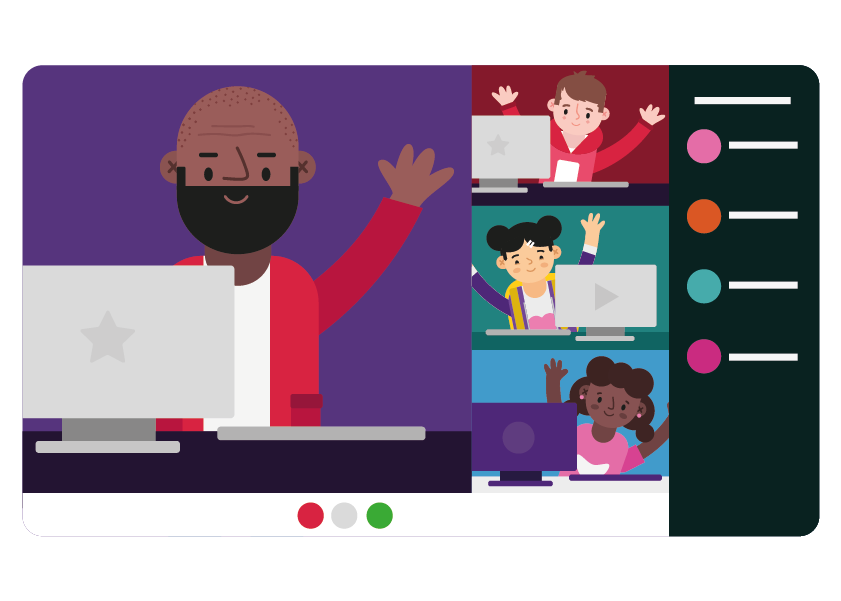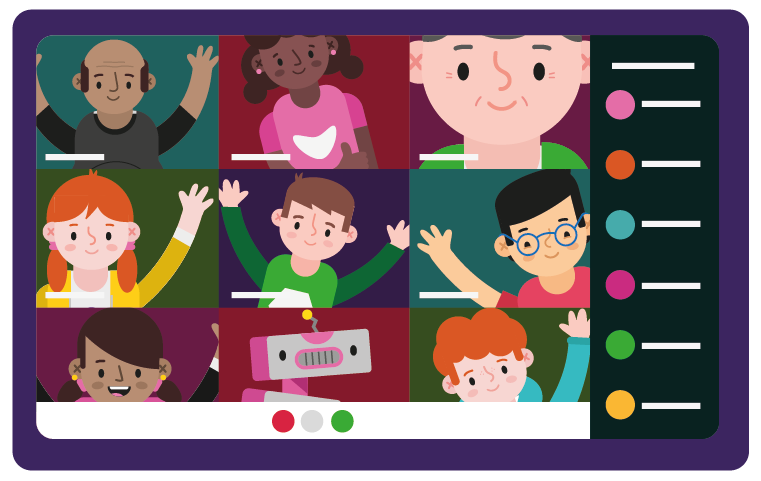
28th August 2020
Three options for running your CoderDojo sessions
This year, the global CoderDojo community has had to adapt to a host of new circumstances in response to the coronavirus pandemic. Despite many Dojos around the world having to pause their sessions earlier this year, a remarkable number of clubs found new and innovative ways to learn, connect, and have fun. You may be wondering how to restart your CoderDojo sessions, so we want to share three key options with you, and highlight some things to consider about each option. These three options are: in-person sessions, online sessions, and remote activities.

In-person sessions
This is an option for Dojos in regions in which restrictions are being lifted and some in-person activity is allowed to resume. There are a number of things to consider before deciding if and how to run in-person sessions. Make sure to check your local public health guidance and talk to a representative of the venue where you normally host your sessions. It is likely that you will need to make adaptations to how you normally organise, communicate about, and run your sessions. Things like social distancing, cleaning, hygiene, use of face coverings, and managing contact tracing are just some of the broader areas that you will need to consider when planning your event.

Several Dojos have already run in-person sessions with these adaptations including Martijn in the Netherlands and Petra in Czechia. They noted:
“Everyone was ok because we’ve been home for a long time and some of the kids had already returned to school by the time we started […] I sent an email first because we had only three sessions left, whether they would want to do it. I was surprised that almost everyone wanted to come, and they were ok with [the rules].” – Petra
“A lot of parents were at ease when they saw these rules because they were the same rules as when you go to a restaurant or a cinema […] We just follow the general rules and everyone is used to it.” – Martijn
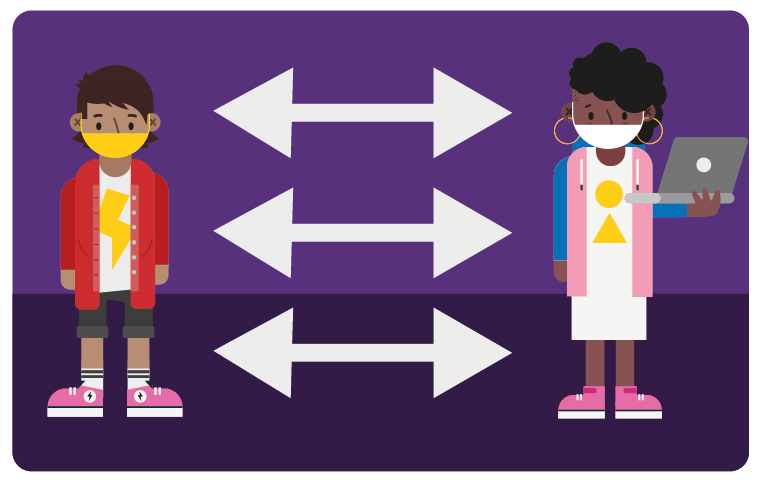 Some Dojos may be able to run in person in accordance with local safety guidelines
Some Dojos may be able to run in person in accordance with local safety guidelines
Online sessions
If it isn’t safe to run in-person sessions, then online sessions can be a great way to continue running your club. You can choose between video conferencing, where you might use tools like Zoom, or live streaming, where you might use tools like YouTube Live Stream. Almost 22% of Dojos polled in May reported that they were running online sessions. Read our guidance if you would like to learn more about running your sessions online.
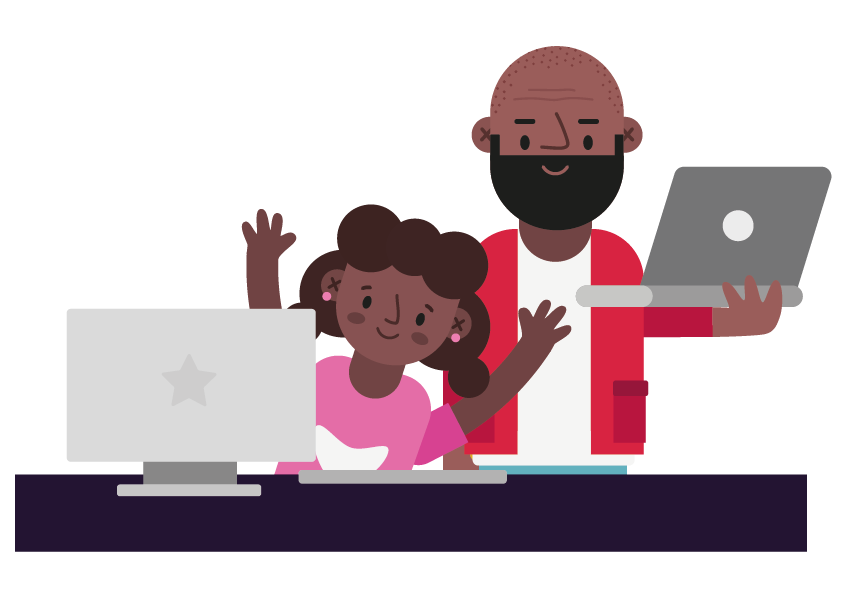
Using video-conferencing tools
If you want the session to be more interactive, and allow for children to work on their projects more independently — while still being able to support them in real time — you can use video conferencing tools. This is a great option if you have several other volunteers able to support you, particularly if you are interested in creating ‘breakout rooms’ to accommodate different groups.
Livestream code-alongs
Alternatively, if you think your attendees would be better suited to an instructor-led, ‘code-along’ session, then you might choose to use live streaming tools instead. This option is also useful if you don’t have many other volunteers to support you. It is worth asking parents/guardians in advance what tools they and their children are already familiar with before you decide on the approach.
Some key things to consider when running online sessions are ensuring safety of young people online, and how to structure your session. Here is an example session structure that you can adapt. To find out more about running online sessions, see our detailed guide.
 Online sessions can be a great way to connect to your Dojo members in real time
Online sessions can be a great way to connect to your Dojo members in real time
Remote sessions
This is a great option if it isn’t safe to meet in person and you do not have enough volunteers to run online sessions. In this approach, you would send out activities to Dojo attendees for them to complete in their own time. This is useful if your time is limited, or if Dojo participants are unable to attend a live video conferencing session due to bandwidth or timing challenges, for example.
You can regularly email projects or challenges to parents/guardians of attendees and ask them to share their children’s projects with you. If you would like to support Ninjas while they complete the activities, you could also use classroom management tools to support them remotely. To find out more about sending remote activities, see our detailed guide.
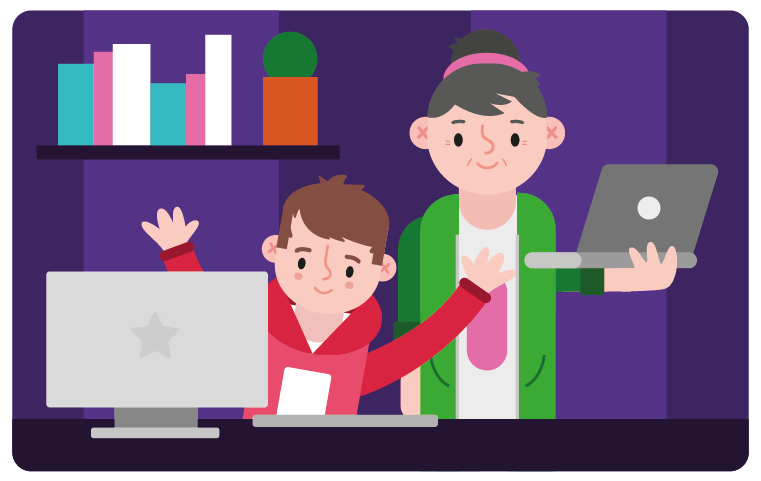 You can keep your Ninjas engaged by sending out activities to be completed remotely
You can keep your Ninjas engaged by sending out activities to be completed remotely
Adapting and combining options
You may need to adapt how you run your club as restrictions in your local area change. You may also wish to combine elements of online, remote, and in-person activities. Here are some examples of how clubs are currently combining options:
- Remote activities work very well in combination with either in-person or online sessions, where young people might be sent a project remotely, and then meet in person or online to discuss any issues they have and showcase what they’ve made as a group.
- Some clubs that are returning to in-person sessions are using it as an opportunity to teach young people how to use online tools, so that if restrictions are reintroduced, they are able to adapt quickly and hold their sessions online.
- Some clubs with a limited number of places for in-person sessions are hosting online sessions for the older, more experienced Ninjas, so that the in-person sessions can accommodate younger and less experienced Ninjas who need more support.
- Some club volunteers are using video conferencing tools to connect with other mentors while they organise in-person sessions. Similarly, video conferencing is a good medium for planning materials or projects to send out as remote activities.
Supporting you
Regardless of what stage you and your club are at, we are here to support you.
You can join our regular community calls to hear the latest guidance and examples from the community, connect with other community members on our CoderDojo Global Slack, or let us know how you are getting on by email.
Did you know that there are additional tools available to Dojos?
- Google Meet and Google Classroom are free for schools and Dojos (using their @coderdojo.com email address).
- Zoom has temporarily lifted the 40-minute restriction for schools and Dojos (using their @coderdojo.com email address) on the free basic version of their tool. You can also contact Zoom directly to ask for the limit to be removed for your club if you don’t have an @coderdojo.com email address for your Dojo.
